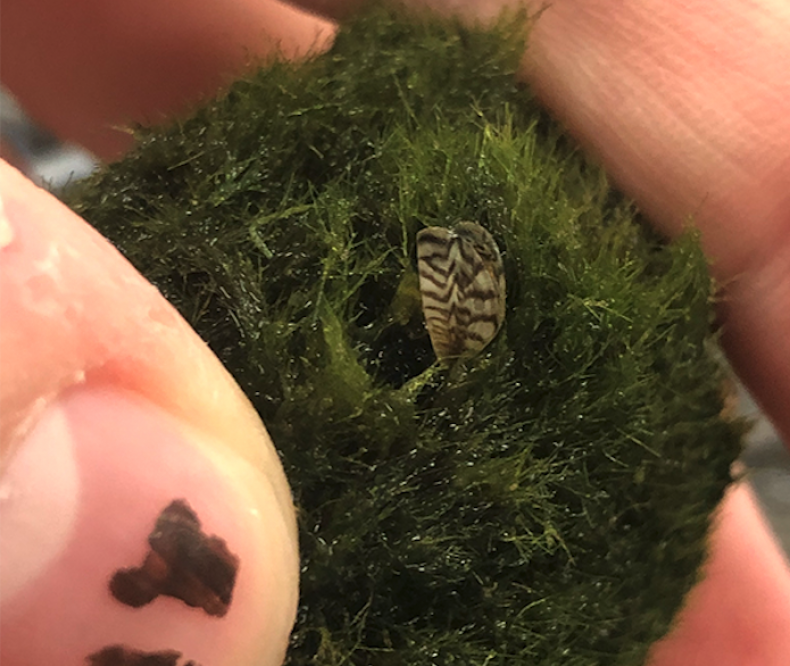Invasive Zebra Mussels Found in Pet Store Moss Balls Could Cause 'Serious Damage'
An invasive species of mollusk that is known to disrupt food chains and drinking water systems has been discovered in the U.S. attached to an aquarium moss plant, with pet stores and consumers urged to dispose of the product.
The Oregon Department of Fish and Wildlife (ODFW) said it was alerted to the situation after an employee from Seattle retailer Petco found the species, zebra mussels, inside a moss plant product that's officially branded as the "Betta Buddy Marimo Ball."
An ODFW invasive species expert who visited a second store in the Salem region on Wednesday confirmed "viable" zebra mussels in the same product.
"We urge all pet stores to immediately remove this product from their shelves," said Rick Boatner, who is an ODFW supervisor. "Our concern is that invasive mussels from this product could get into the wild, start a population and do serious damage.
"Another concern is we might pick up tissue from the invasive mussel in the water when we sample, which could give us a false positive eDNA (environmental DNA) test."
A testimony on the United States Geological Survey's (USGS) Nonindigenous Aquatic Species database said they arrived in shipments of the Marimo moss balls.
"I work in the aquatics department, and almost every shipment... that I have unpacked for the past two months has had mussels nestled in the moss balls," it read.
Oregon and the Pacific Northwest are currently believed to be free of zebra mussels but officials voiced concern some of these pests could be released into the wild.
According to the ODFW, zebra mussels can "quickly take over" if they get established in a body of water. They can clog water intake and delivery systems for drinking water, and change the chemistry of the water, causing algae outbreaks or "offensive" tastes.
It was not immediately clear how many U.S. states the mussel invasion could impact. Petco and the ODFW have been contacted for additional information by Newsweek.
In a USGS fact sheet, the species, which is named after stripes on its shell, is described as an "invasive, fingernail-sized mollusk" native to waters of Europe and Asia.
They have been found in the Great Lakes area and eastern Mississippi rivers, but have also been documented as reaching Texas, Colorado, Utah, Nevada and California.
"Zebra mussels probably arrived in the Great Lakes in the 1980s via ballast water that was discharged by large ships from Europe," the USGS website says.
"Zebra mussels negatively impact ecosystems... they filter out algae that native species need for food and they attach to—and incapacitate—native mussels. Power plants must also spend millions of dollars removing zebra mussels from clogged water intakes."
Wildlife officials urged consumers and pet stores to safely dispose of the items so the mussels are not released into storm drains or flushed into waterways.
As a result, people are advised to freeze or boil the moss ball before throwing it in the trash—and not to flush it down the toilet or throw them outside. In general, consumers are for now urged to stop buying the aquarium plant product, the ODFW said.
If it's in an aquarium, people are advised to remove the fish, apply household bleach to the tank and let it set for about 10 minutes, before pouring that water down a sink.


